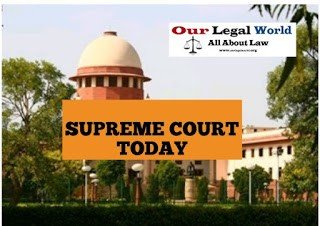IMPORTANT SUPREME COURT JUDGMENT 7th Feb, 2019
Writ court is not powerless in ‘rare and exceptional’ cases to order revaluation even in cases where there is no provision for revaluation.
“The wide power under Article 226 may continue to be available even though there is no provision for revaluation in a situation where a candidate despite having giving correct answer and about which there cannot be even slightest manner of doubt, he is treated as having given the wrong answer and consequently the candidate is found disentitled to any marks.”, the bench comprising Justice Ashok Bhushan and Justice KM Joseph.
Supreme Court 2019 with 19 Important Judgments
2. Bir Singh vs. Mukesh Kumar
Subsequent filling in of an unfilled signed cheque is not an alteration and even a blank cheque leaf, voluntarily signed and handed over by the accused, which is towards some payment, would attract presumption under Section 139 of the Negotiable Instruments Act, in the absence of any cogent evidence to show that the cheque was not issued in discharge of a debt.
“fiduciary relationship between the payee of a cheque and its drawer, would not disentitle the payee to the benefit of the presumption under Section 139 of the Negotiable Instruments Act, in the absence of evidence of exercise of undue influence or coercion.”
Bench: Justice R. Banumathi and Justice Indira Banerjee
Request for seeking Adjournment in the application under Section 127B of Customs Act, 1962
3. BALKRISHNA DATTATRAYA GALANDE V. BALKRISHNA RAMBHAROSE GUPTA AND ANR.
Under Section 38 of the Specific Relief Act, an injunction restraining the defendant from disturbing possession may not be granted in favour of the plaintiff unless he proves that he was in actual possession of the suit property on the date of filing of the suit.
“In a suit filed under Section 38 of the Specific Relief Act, possession on the date of suit is a must for grant of permanent injunction. When the first respondent-plaintiff has failed to prove that he was in actual possession of the property on the date of the suit, he is not entitled for the decree for permanent injunction.”







